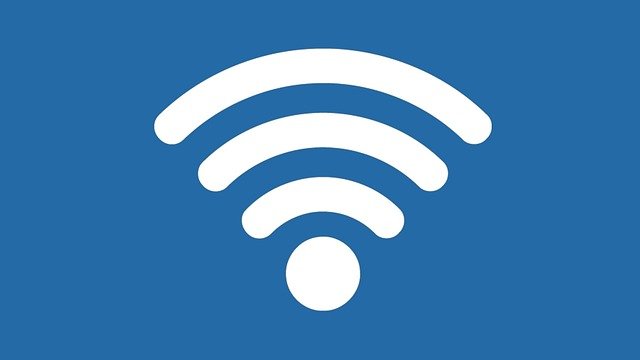Many Kiwis Over 50 Are Paying Too Much for Their Internet – Without Realising It
Most internet providers in New Zealand offer special deals, senior discounts, or tailored packages – but they are not always advertised. If you are over 50, there’s a good chance you’re not getting the best value for your broadband. To make sure you’re not overpaying, it’s worth reviewing the latest offers available in your area. You could be eligible for high-speed fibre or broadband at a much lower price – all it takes is knowing where to look.

Why are seniors often overpaying for internet?
One of the main reasons seniors may be overpaying for their internet is a lack of awareness about current market offerings. Many older adults tend to stick with their long-term providers out of habit or loyalty, unaware that better deals may be available. Additionally, some seniors may not be as comfortable navigating online comparison tools or negotiating with providers, leading them to miss out on potential savings.
Another factor is the rapid advancement of technology. What was once considered a premium service may now be standard, yet some customers continue paying higher rates for outdated plans. Providers often introduce new packages and promotions, but without actively seeking this information, long-term customers might not benefit from these improved offers.
What are the benefits of wireless internet for seniors?
Wireless internet offers several advantages that can be particularly beneficial for seniors:
-
Flexibility: With wireless internet, seniors can access the web from anywhere in their home, allowing them to use devices in comfortable locations.
-
Easy setup: Wireless connections typically require less complex installation, which can be especially helpful for those who are less tech-savvy.
-
Multiple device connectivity: Seniors can connect various devices like smartphones, tablets, and smart TVs to a single wireless network.
-
No need for landlines: Wireless broadband doesn’t rely on traditional phone lines, which can be advantageous for those who prefer mobile phones.
-
Potential for better speeds: Modern wireless technologies can offer faster internet speeds compared to some older wired connections.
How can you find the best deals on wireless internet?
To ensure you’re getting the best value for your wireless internet, consider the following steps:
-
Research current offers: Regularly check provider websites and comparison sites for the latest deals.
-
Contact your current provider: Ask about any new packages or discounts they may offer to retain your business.
-
Compare plans: Look at different providers’ offerings, considering factors like speed, data allowance, and contract terms.
-
Consider bundled services: Some providers offer discounts when you combine internet with other services like mobile plans or TV packages.
-
Look for senior-specific deals: Some companies provide special rates or packages tailored for older adults.
-
Ask about no-contract options: These can offer more flexibility and the ability to switch providers if better deals become available.
Are there government assistance programs for internet?
While New Zealand doesn’t have a specific government program for internet assistance aimed at seniors, there are initiatives that can help reduce costs:
-
Digital Inclusion Alliance Aotearoa: This organization works to improve digital literacy and access to technology for all New Zealanders, including seniors.
-
Kāinga Ora - Homes and Communities: Some social housing properties managed by this agency offer subsidized internet access to tenants.
-
Local library services: Many public libraries provide free internet access and digital literacy programs that can help seniors reduce their reliance on home internet.
-
Community centers: Some community centers offer free or low-cost internet access and computer use.
While these aren’t direct financial assistance programs, they can help seniors reduce their overall internet expenses or provide alternatives to home internet services.
What are the top wireless internet options for seniors?
To help seniors make informed decisions about their wireless internet options, let’s compare some of the leading providers in New Zealand:
| Provider | Plan Name | Data Allowance | Speed | Monthly Cost |
|---|---|---|---|---|
| Spark | Wireless Broadband Starter | 120GB | Up to 40Mbps | $65 |
| Vodafone | Home Wireless Broadband | Unlimited | Up to 60Mbps | $65 |
| 2degrees | Broadband Lite | 120GB | Up to 40Mbps | $65 |
| Skinny | Wireless Broadband | 60GB | Up to 40Mbps | $39 |
| Slingshot | Wireless Broadband | Unlimited | Up to 40Mbps | $69.95 |
Prices, rates, or cost estimates mentioned in this article are based on the latest available information but may change over time. Independent research is advised before making financial decisions.
These plans offer a range of options suitable for different needs and budgets. Spark and Vodafone, being larger providers, often have extensive coverage. 2degrees and Skinny provide competitive pricing, while Slingshot offers unlimited data at a reasonable rate. When choosing a plan, consider factors like data usage, desired speed, and coverage in your area.
In conclusion, many Kiwis over 50 could potentially save money on their internet services by staying informed about current offers and exploring different options. By understanding the benefits of wireless internet, knowing how to find the best deals, and being aware of available assistance programs, seniors can ensure they’re getting the most value for their money. Regular reviews of your internet plan and provider can lead to significant savings and potentially better service, keeping you connected without unnecessary costs.




